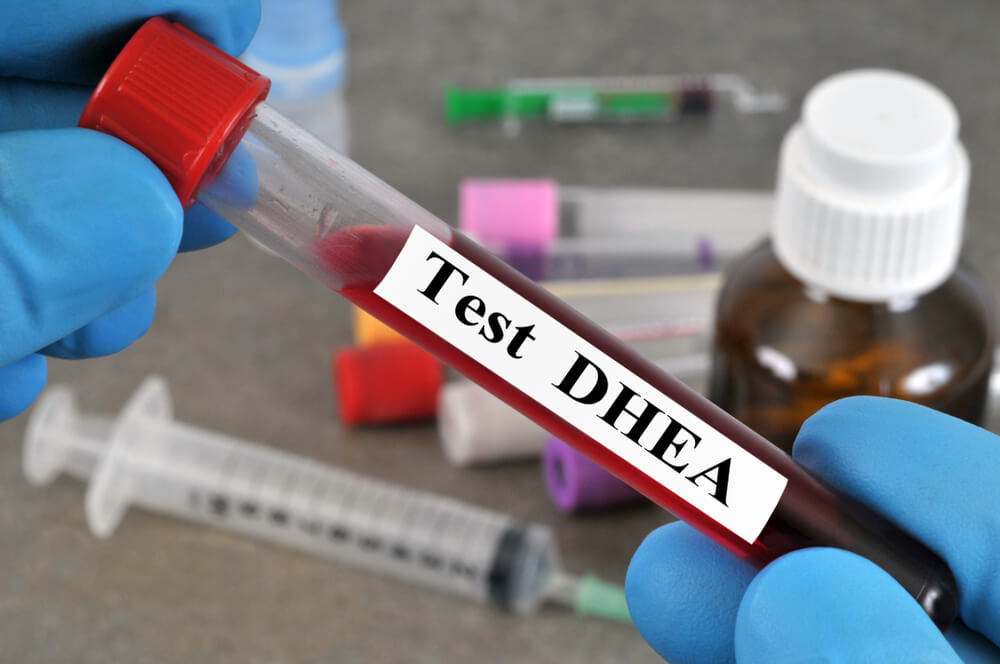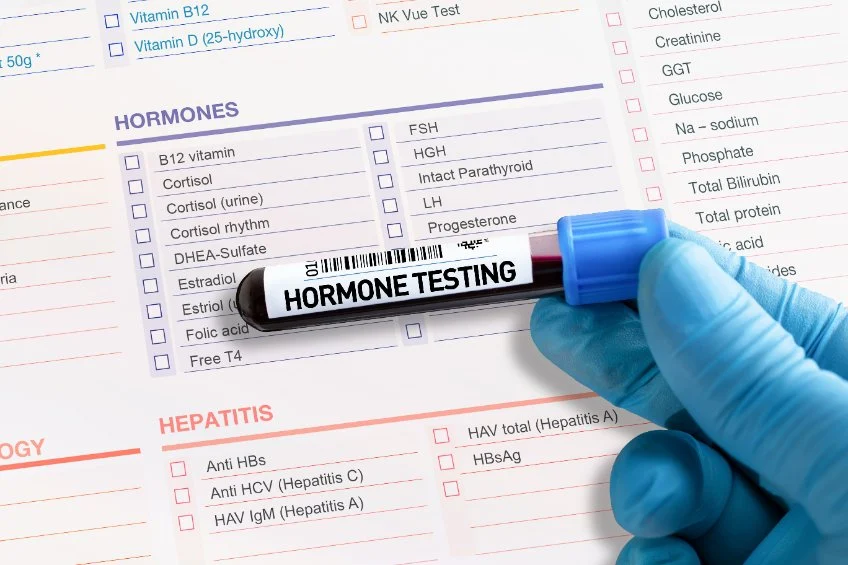Hormones play a crucial role in nearly every aspect of a man’s health — from energy levels and mood to muscle mass, libido, and even long-term disease risk. Yet, for many men, hormone health remains an afterthought until symptoms become too disruptive to ignore. Whether you’re feeling more fatigued than usual, noticing changes in your weight or performance, or simply aiming to stay ahead of age-related health shifts, checking your hormone levels can provide critical insights.
Recommended: Does Blue Cross Blue Shield Cover Testosterone Treatment?
But how often should men really get their hormone levels checked? The answer isn’t one-size-fits-all. It depends on your age, lifestyle, symptoms, and overall health goals.
In this article, we’ll break down when and how often men should consider hormone testing, what symptoms to watch for, and how to take a proactive approach to hormonal health.
Why Hormone Levels Matter for Men’s Health
Hormones are essential to nearly every function in a man’s body, influencing energy, mood, metabolism, sexual health, and overall well-being. While testosterone is often the most discussed, other hormones like cortisol, thyroid hormones, DHEA, and even small amounts of estrogen play crucial roles in keeping the body in balance and performing at its best.

When hormone levels become imbalanced—whether due to aging, chronic stress, poor lifestyle habits, or underlying medical issues—men may begin to notice symptoms like fatigue, low libido, mood swings, weight gain, or reduced muscle mass. These issues can creep in gradually and are often mistaken for normal signs of aging, but they may actually indicate a deeper hormonal disruption that deserves attention.
Recommended: 3 Human Hormones Most Directly Involved in Sexual Reproduction
Regular hormone checks help men catch imbalances early, often before symptoms become severe or lead to more serious health concerns. By understanding and managing hormone health proactively, men can maintain vitality, support long-term physical and mental performance, and reduce the risk of chronic illness as they age.
When Should Men Start Getting Their Hormone Levels Checked?
There’s no universal age when every man needs to begin hormone testing, but there are some general milestones and risk factors to keep in mind. Hormone levels—especially testosterone—naturally decline with age, typically starting in the early 30s. However, that decline isn’t always linear or predictable, and symptoms of hormonal imbalance can appear earlier or later depending on genetics, lifestyle, and overall health.
In Your 30s: Establishing a Baseline
Men in their 30s may not feel an urgent need to test hormone levels unless they’re experiencing symptoms like fatigue, low libido, or trouble focusing. Still, this is a great time to establish a baseline. Knowing what your “normal” looks like when you feel healthy can help you spot changes later. If you’re under chronic stress, have gained significant weight, or are dealing with fertility concerns, it’s wise to get tested sooner.
Recommended: 8 Common Causes Of Erectile Dysfunction In Young Men
In Your 40s: Monitoring Subtle Shifts
By the 40s, many men begin to notice subtle shifts—less energy, longer recovery times, reduced drive. At this stage, hormone testing becomes more relevant, even for men without obvious symptoms. A check every 1–2 years can help detect gradual declines in testosterone or thyroid function and guide early interventions, whether lifestyle-based or medical.
In Your 50s and Beyond: Staying Ahead of Age-Related Decline
Once in your 50s, hormone testing should become a regular part of your health routine—similar to blood pressure or cholesterol checks. Testosterone levels often decline more noticeably in this decade, and symptoms like weight gain, sleep issues, and decreased muscle mass become more common. Annual testing is typically recommended, especially if you’re managing other health issues like diabetes, heart disease, or low bone density.
How Often Should Hormone Testing Be Done?
The frequency of hormone testing depends on several factors — including your age, symptoms, lifestyle, and any pre-existing health conditions. For most healthy men, hormone levels don’t need to be checked constantly, but routine monitoring can help catch imbalances early and guide personalized health decisions.
General Recommendations:
- Men in their 30s and early 40s with no symptoms may only need testing every 2–3 years to monitor baseline changes.
- Men in their mid-40s and beyond, especially those noticing symptoms like fatigue, low libido, or mood changes, may benefit from testing annually.
- Men on testosterone replacement therapy (TRT) or other hormone treatments require more frequent monitoring — typically every 3–6 months — to adjust doses and ensure safety.
Lifestyle and Medical Considerations:
Men under high stress, with poor sleep, weight issues, or chronic illnesses (like diabetes or thyroid disorders) should consider more regular checks, even if they’re younger. Hormone levels can fluctuate due to lifestyle changes, medications, and even significant life events, so your testing schedule may need to adapt over time.
Recommended: Best Green Tea For Prostate Health
In short, hormone testing isn’t just a one-time task — it’s part of an ongoing strategy to support men’s health through every stage of life. Staying proactive ensures that subtle hormonal shifts don’t go unnoticed and can be managed before they impact your quality of life.
Types of Hormone Tests Men Should Consider
Hormone testing isn’t just about testosterone — a comprehensive approach includes evaluating a range of hormones that impact energy, mood, metabolism, and sexual function. Understanding which hormones to test gives you a fuller picture of your overall health and helps pinpoint the root causes of any symptoms you’re experiencing.
1. Testosterone (Total and Free)
- Total Testosterone: Measures the overall amount in your bloodstream.
- Free Testosterone: Reflects the active, usable form not bound to proteins.
Low testosterone can contribute to fatigue, low libido, muscle loss, and mood issues.
2. DHEA (Dehydroepiandrosterone)

- A precursor hormone that helps produce testosterone and estrogen.
- Plays a role in immune function, aging, and stress resilience.
Levels typically decline with age and chronic stress.
3. Estradiol (Estrogen)
- Men need small amounts of estrogen for bone health and hormone balance.
- High levels can occur when testosterone is converted to estrogen (aromatization), especially in overweight men.
Recommended: Best Dark Chocolate For Prostate Health
4. Cortisol
- The primary stress hormone, impacting energy, sleep, blood sugar, and fat storage.
- Elevated or chronically low cortisol levels can indicate adrenal fatigue or chronic stress.
5. Thyroid Panel (TSH, Free T3, Free T4)
- Regulates metabolism, energy, weight, and mood.
- An underactive thyroid (hypothyroidism) can mimic low testosterone symptoms like fatigue, depression, and brain fog.
6. LH and FSH (Luteinizing Hormone & Follicle-Stimulating Hormone)
- These pituitary hormones control testosterone production and sperm health.
- Low levels can indicate a problem at the brain level (secondary hypogonadism).
7. Prolactin
- Often tested if there are symptoms like erectile dysfunction or low testosterone.
- Elevated levels may point to a pituitary gland issue.
Symptoms That May Warrant Immediate Hormone Testing
Hormonal imbalances often develop gradually, but certain symptoms should prompt men to get tested sooner rather than later. Ignoring these signs can lead to worsening health issues, reduced quality of life, and complications that are harder to reverse. If you’re experiencing any of the following symptoms, it’s a smart move to talk to your doctor and request a hormone panel.
1. Persistent Fatigue or Low Energy
If you’re constantly tired—even after a full night’s sleep—it could be more than just stress or aging. Low testosterone, thyroid dysfunction, or cortisol imbalance may be draining your energy.
Recommended: Is Lack of Sleep Affecting My Testosterone Levels?
2. Low Libido or Erectile Dysfunction
A noticeable drop in sex drive or difficulty maintaining erections is often one of the earliest signs of low testosterone. Hormonal issues can also affect fertility and overall sexual performance.
3. Unexplained Weight Gain or Muscle Loss
Sudden changes in body composition—especially gaining belly fat or losing muscle mass despite regular exercise—may point to declining testosterone, high estrogen, or thyroid issues.
4. Mood Changes, Anxiety, or Depression
Hormones directly affect brain chemistry. Irritability, depression, anxiety, or loss of motivation can all be linked to low testosterone, elevated cortisol, or thyroid imbalances.
5. Poor Sleep or Insomnia
Struggling to fall asleep, stay asleep, or waking up unrefreshed could stem from imbalanced cortisol or low testosterone, both of which help regulate your sleep-wake cycle.
6. Brain Fog or Difficulty Concentrating
If your focus and memory aren’t what they used to be, a hormonal issue could be the cause—particularly low testosterone or thyroid dysfunction.
7. Decreased Strength, Endurance, or Recovery
Trouble building strength, slower recovery after workouts, or declining performance at the gym may signal hormonal decline, especially in testosterone and growth-related hormones.
What to Do if Your Hormone Levels Are Off
Discovering that your hormone levels are out of balance can feel overwhelming, but it’s also a crucial first step toward reclaiming your health. The good news is that many hormone imbalances can be managed or improved through a combination of lifestyle changes, medical treatments, and ongoing monitoring.
1. Consult a Healthcare Professional

If your test results show abnormal hormone levels, the first step is to discuss them with a qualified healthcare provider—ideally an endocrinologist, urologist, or a doctor specializing in men’s health. They can help interpret the results in the context of your symptoms and overall health, and develop a personalized treatment plan.
Recommended: Will Pelvic Floor Therapy Help with Hard Flaccid?
2. Lifestyle Adjustments
For many men, natural strategies can significantly improve hormone balance:
- Nutrition: Eating a balanced diet rich in healthy fats, lean protein, and whole foods supports hormone production.
- Exercise: Regular strength training and cardiovascular activity help boost testosterone and improve metabolic health.
- Sleep: Prioritize quality sleep, as many hormones regenerate during deep rest.
- Stress Management: Chronic stress raises cortisol, which can suppress testosterone; practices like meditation, yoga, or mindfulness can help.
- Avoiding Endocrine Disruptors: Limit exposure to chemicals found in plastics, pesticides, and some personal care products.
3. Medical Treatments
In cases of significant hormone deficiency or imbalance, medical interventions may be necessary:
- Testosterone Replacement Therapy (TRT): For men with clinically low testosterone, TRT can restore levels and improve symptoms but requires regular monitoring.
- Thyroid Medication: For hypothyroidism or other thyroid disorders, medication can normalize thyroid hormone levels.
- Other Hormone Modulators: Depending on the imbalance, doctors may prescribe medications to regulate cortisol, estrogen, or pituitary hormones.
4. Regular Follow-Up and Monitoring
Hormone health isn’t a “set it and forget it” situation. Ongoing testing ensures treatments are effective and safe, and helps adjust your plan as needed. Tracking symptoms alongside lab results helps optimize your approach.
Conclusion
Hormone health plays a vital role in men’s overall well-being, influencing everything from energy and mood to muscle mass and sexual function. Regular hormone testing, tailored to your age, symptoms, and lifestyle, can help detect imbalances early—before they develop into more serious health problems. Whether you’re in your 30s and establishing a baseline or in your 50s and beyond monitoring age-related changes, staying proactive with hormone checks is key to maintaining vitality and quality of life.
If you notice symptoms like fatigue, low libido, mood changes, or unexplained weight shifts, don’t hesitate to get tested. With the right combination of medical care and lifestyle adjustments, hormone imbalances can often be managed effectively, helping you feel your best at every stage of life. Prioritize your hormonal health today to support a stronger, healthier tomorrow.
